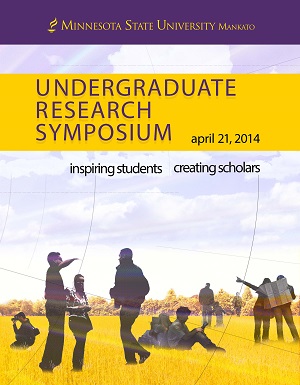Residential Redevelopment, Improving Urban Areas
Location
CSU Ballroom
Start Date
21-4-2014 2:00 PM
End Date
21-4-2014 3:30 PM
Student's Major
Construction Management
Student's College
Science, Engineering and Technology
Mentor's Name
Matthew Durand
Mentor's Department
Construction Management
Mentor's College
Science, Engineering and Technology
Description
Residential Redevelopment Improving Urban Areas In a world that is becoming increasingly sustainable, there lies a vast amount of unsustainable resources that we are faced with transitioning. Over the next few decades there is an opportunity to redevelop this unsustainable infrastructure into areas that will be long lasting and aesthetically pleasing. Research offers simple solutions of progression to dated resources, specifically aimed at the evolution of sustainable urban infrastructure by method of sustainable design. The incorporation of green construction and sustainability has become a standard in both new construction design, and the conversion of existing resources. Through a compilation of sustainable measures, there is evidence that redevelopment of urbanized areas can offer a positive return on investment, and benefit the community on a holistic level. Sustainable redevelopment covers a very broad spectrum; this research will focus specifically on sustainability geared towards safety, health, and energy in urban areas. If urban residential areas are able to improve transportation means, promote the addition of green features, and utilize the technological advances our generation has created, redevelopment investments will be felt, and will be duplicated for the surrounding population. This research has proven that there are many ways to redevelop urban areas, but one ever lasting issue is finding funds for such sorely needed improvements. Being able to justify a projects’ importance can be a difficult task when a majority of the time the funding provider would like to see a profit. Research on sustainable redevelopments profits are focused on the long term “fix”, and the provisions made that benefit the community on all fronts.
Residential Redevelopment, Improving Urban Areas
CSU Ballroom
Residential Redevelopment Improving Urban Areas In a world that is becoming increasingly sustainable, there lies a vast amount of unsustainable resources that we are faced with transitioning. Over the next few decades there is an opportunity to redevelop this unsustainable infrastructure into areas that will be long lasting and aesthetically pleasing. Research offers simple solutions of progression to dated resources, specifically aimed at the evolution of sustainable urban infrastructure by method of sustainable design. The incorporation of green construction and sustainability has become a standard in both new construction design, and the conversion of existing resources. Through a compilation of sustainable measures, there is evidence that redevelopment of urbanized areas can offer a positive return on investment, and benefit the community on a holistic level. Sustainable redevelopment covers a very broad spectrum; this research will focus specifically on sustainability geared towards safety, health, and energy in urban areas. If urban residential areas are able to improve transportation means, promote the addition of green features, and utilize the technological advances our generation has created, redevelopment investments will be felt, and will be duplicated for the surrounding population. This research has proven that there are many ways to redevelop urban areas, but one ever lasting issue is finding funds for such sorely needed improvements. Being able to justify a projects’ importance can be a difficult task when a majority of the time the funding provider would like to see a profit. Research on sustainable redevelopments profits are focused on the long term “fix”, and the provisions made that benefit the community on all fronts.
Recommended Citation
Kleese, Roger and Christopher Franks. "Residential Redevelopment, Improving Urban Areas." Undergraduate Research Symposium, Mankato, MN, April 21, 2014.
https://cornerstone.lib.mnsu.edu/urs/2014/poster_session_B/15




